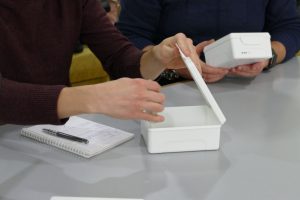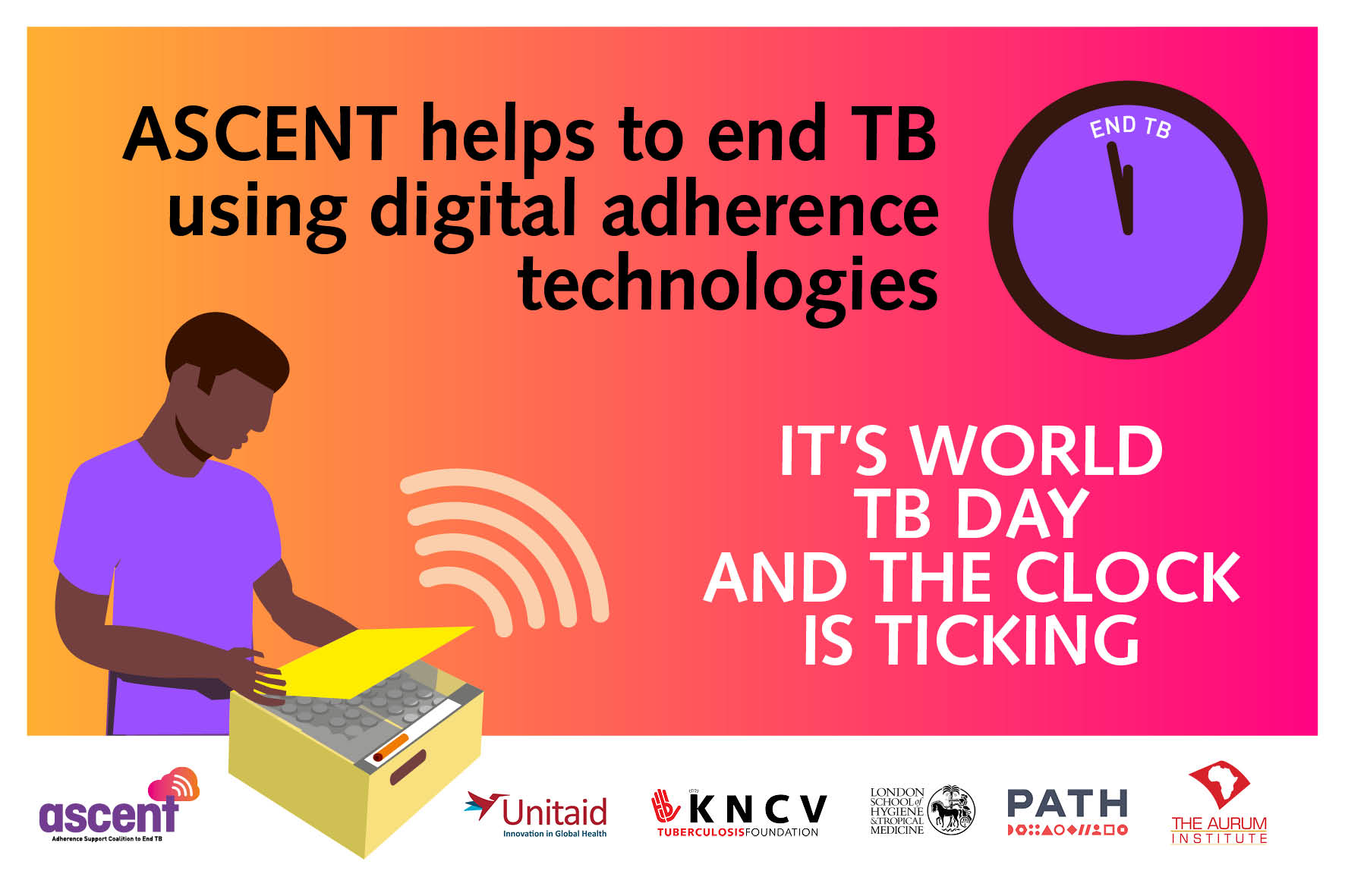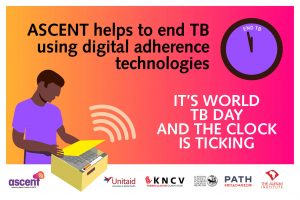Today is World Tuberculosis Day. This year’s theme, ‘The Clock is Ticking’, tells us that the world is running out of time to act on the commitments to end tuberculosis (TB), especially now that the COVID-19 pandemic is hampering the progress of the ongoing actions. Despite the global pandemic, a lot of progress has been made with the ASCENT project. The countries are picking up speed to enroll TB patients on digital adherence technologies (DATs) to support them with their treatment.
Every year on World TB Day, we reflect on the devastating health, social and economic consequences of tuberculosis and draw attention to the actions that are taken to end TB. Tuberculosis remains one of the world’s deadliest infectious diseases. Each day, nearly 4000 lose their lives to TB. Unnecessary, because TB can be cured.
The Unitaid funded and supported ASCENT project, led by KNCV Tuberculosis Foundation, helps TB patients successfully complete their treatment through the use of digital adherence technologies and data-driven support interventions. By generating evidence, establishing a global market and engaging stakeholders, the project aims to make these digital innovations available to all TB patients worldwide.
Project update
At this moment over 800 TB patients from five high TB burden countries (Ethiopia, the Philippines, South Africa, Tanzania and Ukraine) have been provided with a digital adherence technology by the ASCENT project. These DATs include medication sleeves and labels, used to automatically log a patients medication intake; a smart pillbox, which automatically notifies a healthcare worker of the logged daily dose; and video supported treatment, using a customized app on their phone.
“We are currently in the run-in phase of the project. In the next months, thousands more patients in our project countries will receive a smart pillbox or other digital adherence technology. We encourage other countries to do the same”, says Kristian van Kalmthout, ASCENT project director from KNCV Tuberculosis Foundation.

Ethiopian TB patient Mehamed is one of the first patients that received a smart pillbox through the ASCENT-project. He is a young father and merchant of used clothing. Instead of daily visits to the clinic (as is the standard in many countries), the box helps him to take his medication at home.
“Every morning at 06:00 AM, the box sends me an alarm and I take my pills. Every time I take them, Teshome (my nurse) receives a message that informs him I took my medication. He encourages me by calling and messaging me that I’m doing well”, says Mehamed. It also helped to take away his fear and feelings of hopelessness, as he tells in this interview.
ASCENT milestones
The ASCENT project has reached many milestones in the past period. For example, all the ASCENT countries have conducted a randomization ceremony, in which health facilities were assigned to intervention arms and standard of care study arms. This event kicked off the run-in phase, after which all countries could start enrolling TB patients in the DAT programs.
The ASCENT project also released a free Total Cost of Ownership (TCO) tool, which is used for an accurate budget forecast for the implementation and use of DATs in TB treatment. The TCO tool clarifies the expenses related to adoption and scale-up of DATs to inform the decision-makers.
And last but not least, the smart pillbox has been included to the Global Drug Facility (CTO) catalog. Before this, the access to digital adherence technologies had been limited. This development marked a new chapter in the fight against TB.

What’s to come?
In the near future the main research of the ASCENT project will begin. The ASCENT teams in Ethiopia, the Philippines, South Africa, Tanzania and Ukraine will start this in April and/or May of this year.
Mustapha Gidado, executive director KNCV Tuberculosis Foundation: “We look forward to providing more patients the digital adherence technologies. In the coming period, we will continue to implement and generate evidence for the use of DATs by patients and healthcare workers. At the end of the project we aim to share the necessary steps for successful implementation, in order to enable all countries worldwide to provide DATs to TB patients for treatment support. The clock is ticking to end TB, as is underlined on World TB Day today. At ASCENT, we are thankful we can contribute to the fight against TB with these innovative technologies.”
Do you want to stay informed of our developments? Sign up here for the ASCENT newsletter and follow us on Twitter and Facebook!
The Unitaid funded and supported ASCENT project is led by KNCV Tuberculosis Foundation in consortium with The Aurum Institute, London School of Hygiene and Tropical Medicine, and PATH.

